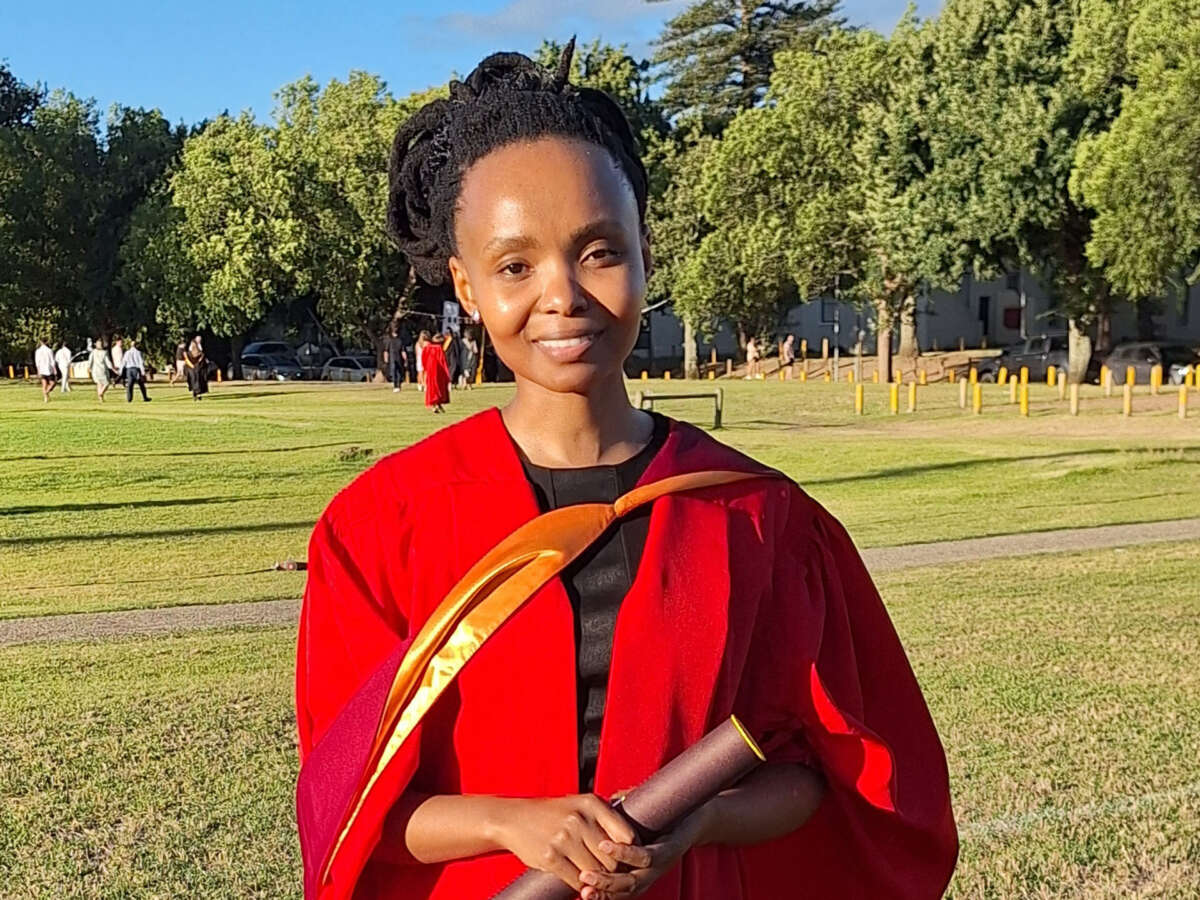Celebrating Dr Lireko P. Qhobela’s Groundbreaking Dissertation on Applied Drama and Theatre
In a remarkable achievement, AVReQ’s Lireko P. Qhobela, has earned her Ph.D. degree with a groundbreaking dissertation that delves into the intricate world of Applied Drama and Theatre. Titled “’We never talk about our work in this way’: A practice-led exploration of the experiences of Applied Drama and Theatre practitioners working in Gauteng and the Western Cape,” her research uncovers the uncharted territories of practitioners’ experiences, emphasizing the significance of embodied dilemmatic spaces in their work.
Applied drama and theatre serve as powerful tools for facilitating discussions on social transformation, bearing witness to others’ suffering, and amplifying the voices of the oppressed. Dr Qhobela’s work recognizes the immense mental and emotional labour invested by practitioners in preparing for interventions. Despite the dedication of these professionals, the field often prioritizes methods, techniques, and community impact. Dr Qhobela’s dissertation shifts the focus to practitioners themselves, aiming to understand their interpretations of their work within diverse South African contexts.
The study, which spans various community settings in Gauteng and the Western Cape, with references to past experiences in Mpumalanga, goes beyond viewing communities solely as recipients of applied drama and theatre effects. Dr Qhobela explores how practitioners’ experiences shape their practice, touching upon execution of interventions, topic expansion, and degrees of support required.
Central to the dissertation are the theoretical concepts of dilemmatic spaces and emotional labour. These concepts provide a conceptual vocabulary to comprehend how practitioners navigate challenges. The study reveals a key finding: the emotional labour involved in applied drama and theatre work can manifest as an embodied sense of dilemmatic spaces. These spaces encompass awareness of physical identity markers such as race and gender, along with bodily sensations, emotions, and physical exhaustion.
While the notions of embodiment and dilemmatic spaces are not new, Dr Qhobela’s work argues for their significance as effects on the practitioner. The discomforts, dilemmas, and contradictions within spaces imprint themselves onto the bodies of practitioners, offering a unique lens through which to deliberate the unaddressed legacies of South Africa’s violent histories.
To embrace the ethos of applied drama and theatre, Dr Qhobela’s study adopts a practice-led research approach, using applied drama and theatre as a research strategy. Incorporating qualitative methods such as semi-structured interviews and participant observations, the research investigates past and present experiences of conducting applied drama and theatre. Notably, the study navigated the challenges posed by the COVID-19 pandemic by conducting methods online, incorporating a contemporary practice element.
Dr Lireko Pearl Qhobela’s groundbreaking dissertation not only contributes to the academic discourse on applied drama and theatre but also sheds light on the lived experiences of practitioners, paving the way for a more nuanced understanding of the complexities inherent in their work. Her commitment to unravelling the embodied dilemmatic spaces showcases a dedication to advancing the field and inspiring future generations of practitioners committed to social justice through the transformative power of drama and theatre.
